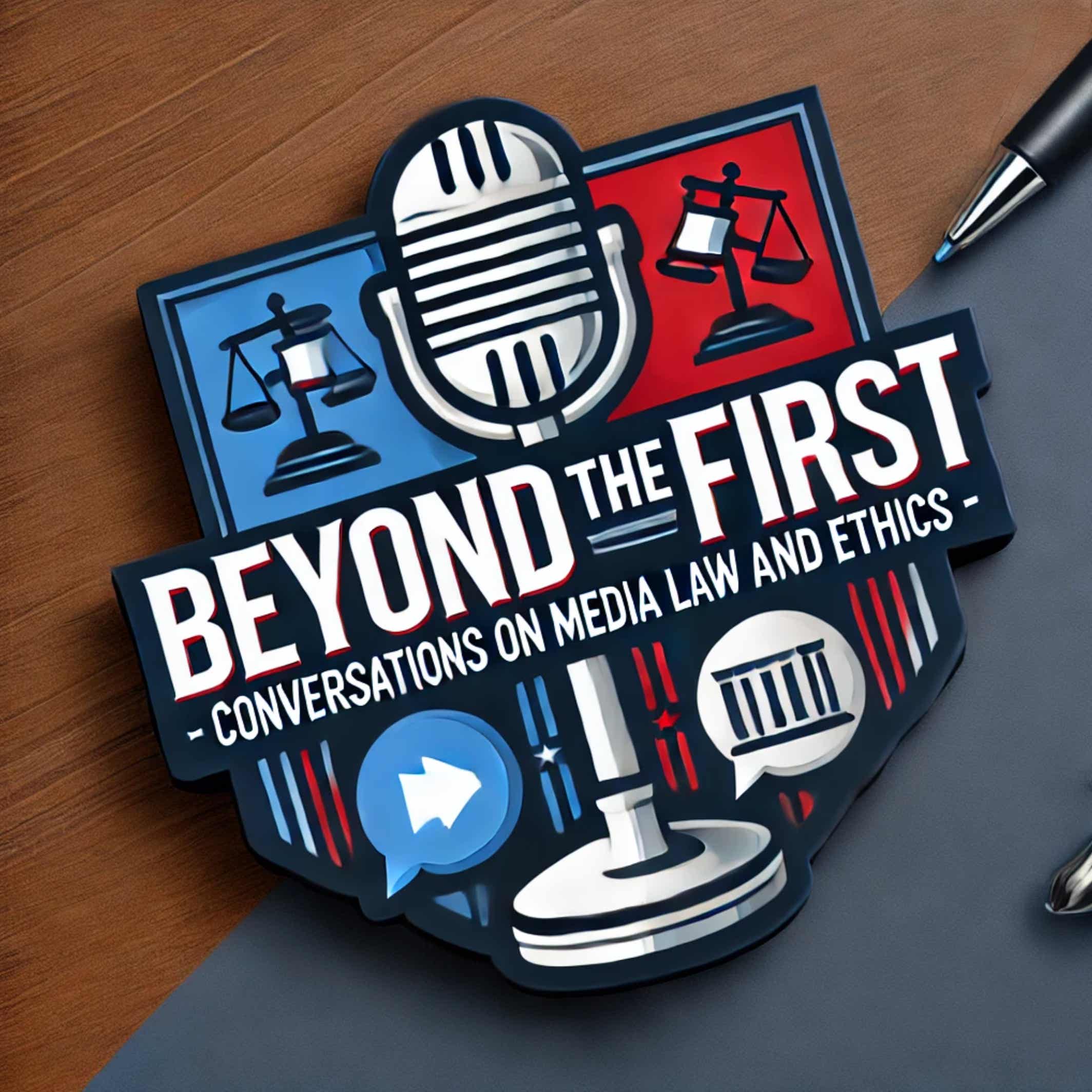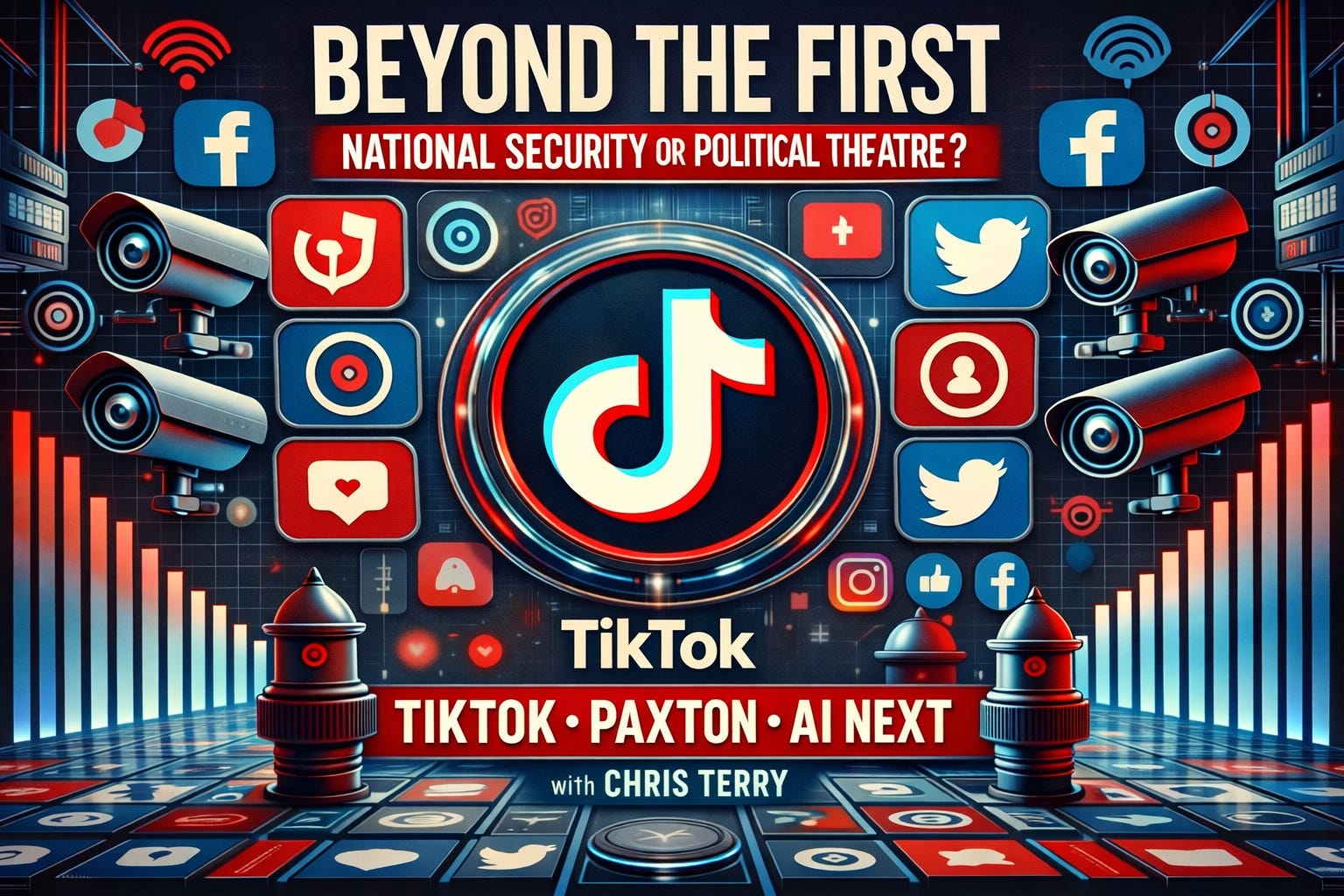Beyond the First Podcast

Beyond the First Podcast
Podcast Description
"Beyond the First" is a ten-episode student-driven podcast that explores the intersection of media law, ethics, and real-world impact. Hosted by Israel Balderas, an assistant professor of journalism and media law expert, each episode features students engaging in thought-provoking discussions about free speech, digital privacy, AI in creativity, defamation, government regulation, and the evolving media landscape.
These conversations provide fresh perspectives on how legal and ethical principles shape the way we communicate and create in the digital age. Through real-world cases, high-profile lawsuits, and emerging legal challenges, this podcast brings academia into public discourse, making complex legal topics accessible to all.
Whether you're a student, a legal professional, a journalist, or simply someone curious about the shifting landscape of media and law, Beyond the First is your go-to source for engaging, unscripted conversations that bridge the gap between theory and practice. Join us as we navigate the ever-changing world of media law and ethics, one episode at a time. israelbalderas.substack.com
Podcast Insights
Content Themes
The podcast delves into critical topics such as free speech, digital privacy, AI's impact on creativity, defamation, government regulation, and current media challenges. For example, one episode explores the legal implications of the Blake Lively v. Justin Baldoni lawsuit, while another tackles the ethical dilemmas posed by AI in creative industries, examining whether AI-generated works deserve copyright protection.

The First Amendment isn’t just a right, it’s a battleground. Beyond the First breaks down the speech-and-power stories behind the headlines: regulation, platforms, press access, and the tech shaping public debate.
Hosted by First Amendment professor and former TV journalist Israel Balderas, Beyond the First explains the free speech fights shaping public life: press, protest, platforms, and emerging tech. Clear, practical, and grounded in law, each episode focuses on how power actually works.
Beyond the First Podcast, with First Amendment scholar Chris Terry.
I’m going to say something that sounds dramatic, but I mean it plainly: 2025 is the year the internet’s First Amendment footing started to shift. It’s not because speech disappeared or because the government passed one giant “censorship law.” But because the Supreme Court signaled – quietly and almost politely – that the internet may no longer get the kind of “newspaper-level” protection many of us have assumed since the late 1990s.
And once that protection starts wobbling, everything else gets easier to regulate.
If you felt this year like free speech became less “a right” and more “terms and conditions apply,” you’re not crazy. What you’re noticing is a structural change.
In my latest Beyond the First podcast episode, I talk with my friend, and University of Minnesota media law scholar, Chris Terry about why the Supreme Court’s decision in Free Speech Coalition v. Paxton is being mis-sold to the public. Most people hear: “Oh, that’s the porn case.” Texas passed an age verification law so kids can’t access adult sites. End of story, right? Common sense. Protect children. Move on.
But that’s not what makes this case consequential. So if you want to understand what actually changed in 2025, and what’s about to get tested in 2026, sit down and listen. This episode will give you the framework, not just the headlines. And I promise: you’ll walk away with better questions.
This is a public episode. If you would like to discuss this with other subscribers or get access to bonus episodes, visit israelbalderas.substack.com

Disclaimer
This podcast’s information is provided for general reference and was obtained from publicly accessible sources. The Podcast Collaborative neither produces nor verifies the content, accuracy, or suitability of this podcast. Views and opinions belong solely to the podcast creators and guests.
For a complete disclaimer, please see our Full Disclaimer on the archive page. The Podcast Collaborative bears no responsibility for the podcast’s themes, language, or overall content. Listener discretion is advised. Read our Terms of Use and Privacy Policy for more details.